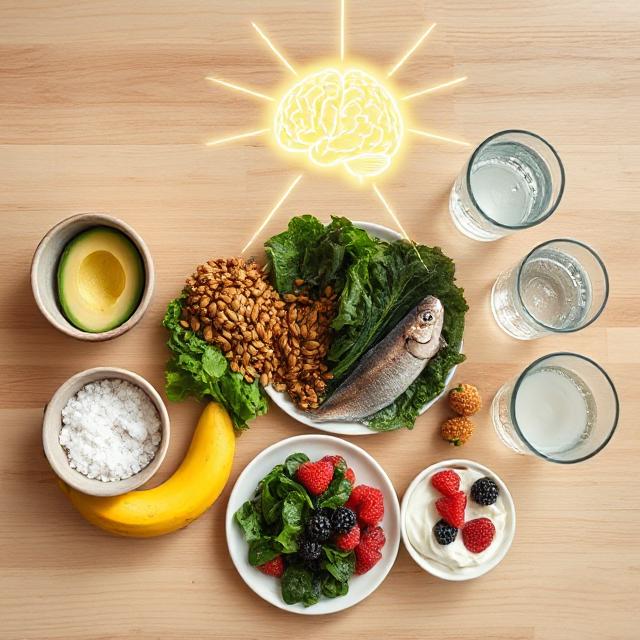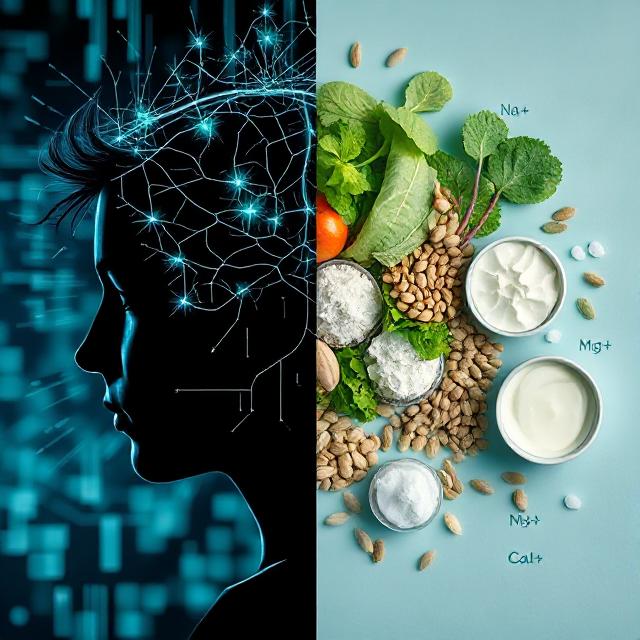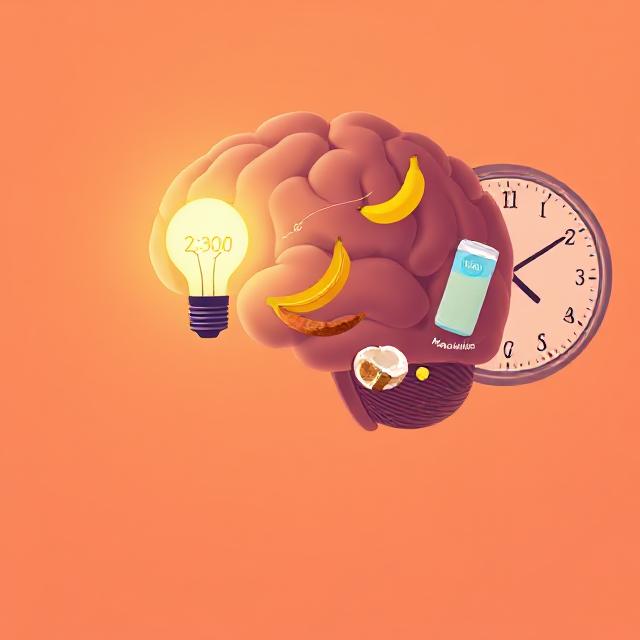Table of Contents
Electrolytes for Performance & Mood: Boost Energy & Stability
If you’re struggling with low energy, mental fog, or emotional ups and downs, the fix might not be in another stimulant—it could be in your electrolyte balance.
Electrolytes like sodium, potassium, magnesium, and calcium power not just your muscles, but also your brain and mood. These minerals control nerve impulses, hormone release, and hydration—three key systems that determine how well you think, feel, and perform.
This page explains how to use electrolytes for performance and mood, covering timing, dosing, and protocols for athletes, professionals, students, and anyone seeking stable energy and clear mental focus.
⚡ What Are Electrolytes?
Electrolytes are charged minerals that dissolve in body fluids and conduct electricity. The main players:
- Sodium – regulates blood pressure, nerve firing, fluid balance
- Potassium – supports muscle contractions, brain signaling
- Magnesium – calms the nervous system, supports mitochondria
- Calcium – triggers muscle movement and neurotransmitter release
Without proper electrolyte balance, you can experience:
- Fatigue and sluggishness
- Muscle weakness or cramps
- Brain fog and indecision
- Anxiety, irritability, or even mild depression
The Mood–Mineral Connection
Electrolytes help regulate neurotransmitters like serotonin, dopamine, and GABA—your chemical messengers of calm, focus, and motivation.
- Low magnesium → heightened anxiety, restless sleep
- Low sodium → brain fog, low blood volume, dizziness
- Low potassium → poor nervous system tone, irritability
- Low calcium → muscle twitching, mental instability
When your mood swings or focus wavers, your nervous system might be underpowered—not emotionally unstable.
Electrolytes for Physical Performance
During Exercise
- Sodium maintains blood volume and prevents dizziness.
- Potassium supports muscle contractions and prevents cramping.
- Magnesium improves muscular endurance and glucose metabolism.
When you sweat, you lose more than water—you lose electrical capacity.
Tip: For every hour of intense sweating, consider replacing 600–1000 mg sodium + 200 mg potassium.
Post-Workout
- Replenish lost minerals to reduce fatigue.
- Avoid sugar-heavy recovery drinks—opt for a DIY mineral mix.
Simple recovery formula:
- 16 oz water
- ½ tsp salt
- ¼ tsp potassium chloride (or cream of tartar)
- Magnesium supplement (200–400 mg, depending on tolerance)
Electrolytes for Mental Clarity & Work Performance
Mental burnout, caffeine crashes, and emotional volatility often signal electrolyte imbalances—especially during long sedentary workdays where stress burns through minerals unnoticed.
Midday Slump Fix
- 12–16 oz water
- ⅛–¼ tsp sea salt
- Optional: squeeze of lemon
- 200 mg magnesium glycinate
Boosts brain perfusion, neurotransmitter support, and stable energy without stimulants.
Electrolytes for Emotional Stability
Electrolyte shifts affect the hypothalamic-pituitary-adrenal (HPA) axis—your body’s stress command center.
- Magnesium calms the excitatory glutamate system and balances cortisol.
- Potassium improves GABA activity, helping you relax.
- Adequate sodium stabilizes blood pressure and reduces stress-induced dizziness or confusion.
If you feel anxious and dehydrated, try salt before reaching for supplements like ashwagandha or L-theanine.
⏱ When to Take Electrolytes
| Timing | Best Protocol |
|---|---|
| Morning | Salt + lemon water to jumpstart adrenals |
| Pre-workout | Sodium + potassium combo |
| Afternoon crash | Magnesium + saltwater blend |
| Before sleep | Magnesium glycinate or malate (200–400 mg) |
| Fasting or keto | Add 1–2g sodium daily; include magnesium & K+ |
BrainWaveBoost Insight
Your mood isn’t random. It’s electric. When your brain runs low on sodium or potassium, neurons misfire. When magnesium is low, calming neurotransmitters decline. Performance isn’t about more hustle—it’s about better charge.
Daily Electrolyte Mood Protocol (General Guide)
| Time | Electrolyte Focus |
|---|---|
| Morning | ½ tsp salt + 16 oz water + lemon |
| Midday | Potassium-rich food or drink |
| Evening | 300 mg magnesium + warm herbal tea |
Stay hydrated, but stay charged. That’s how you shift from reactive to resilient.
Conclusion
Using electrolytes for performance and mood means reclaiming your energy from the cellular level up. These minerals control the signals your body depends on—mental sharpness, muscular power, emotional grounding.
You don’t need another cup of coffee. You might need salt and magnesium.
Balance your minerals, and your mind will follow.
References
- Institute of Medicine: Dietary Reference Intakes for Electrolytes
- Journal of Trace Elements in Medicine and Biology, 2022
- NIH: Magnesium and the Brain




